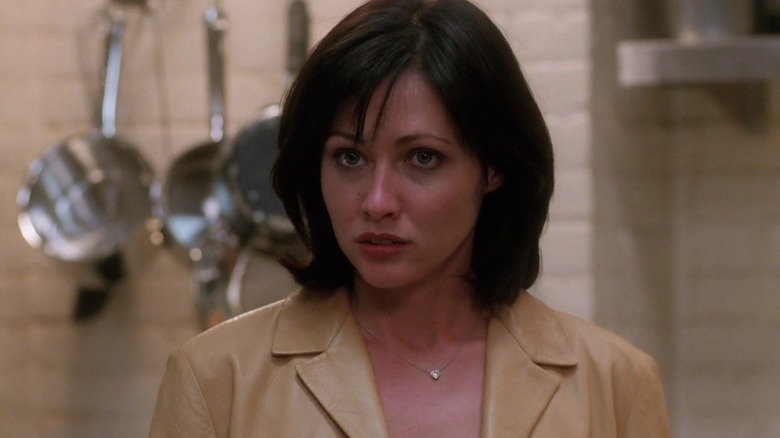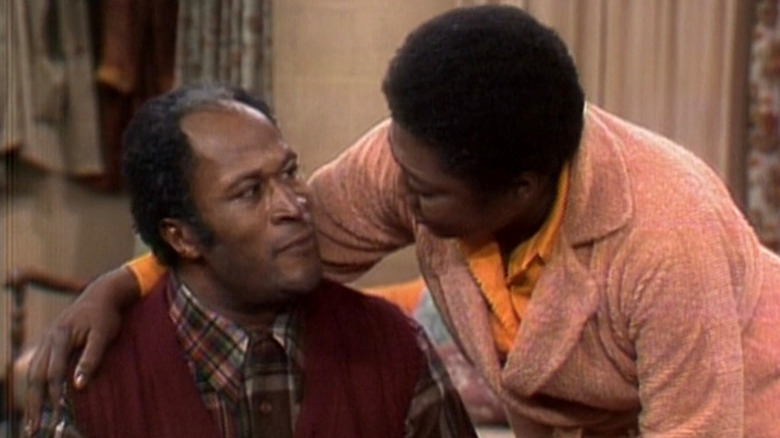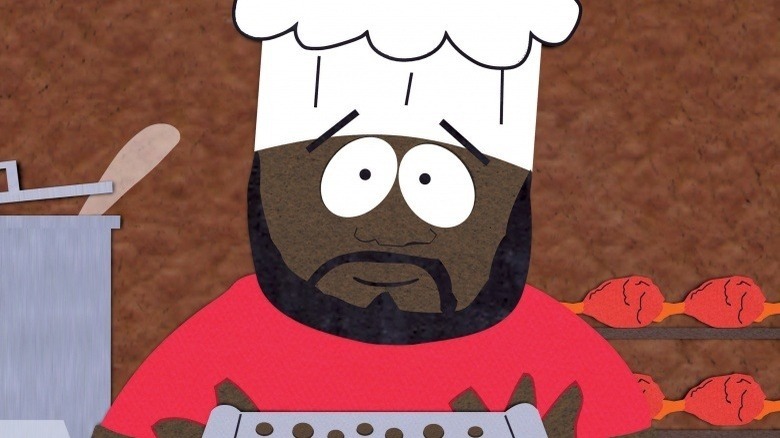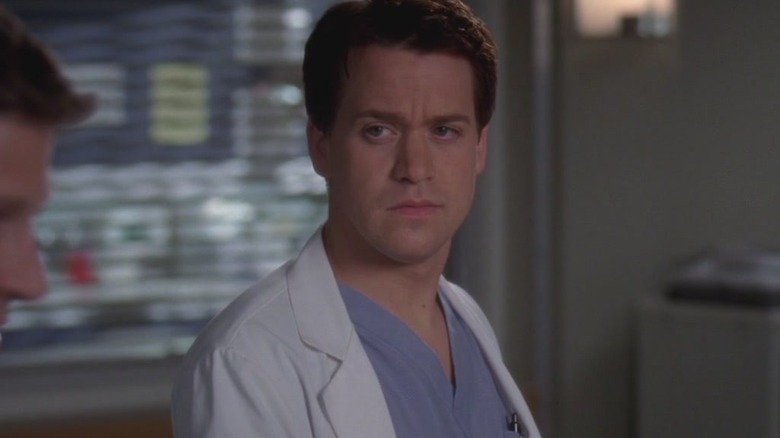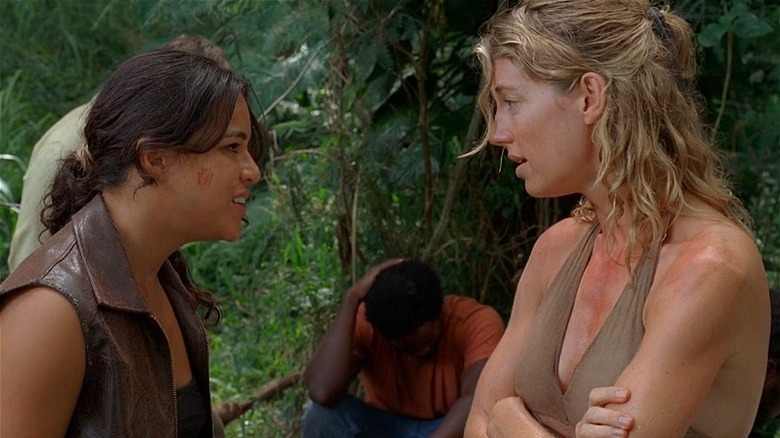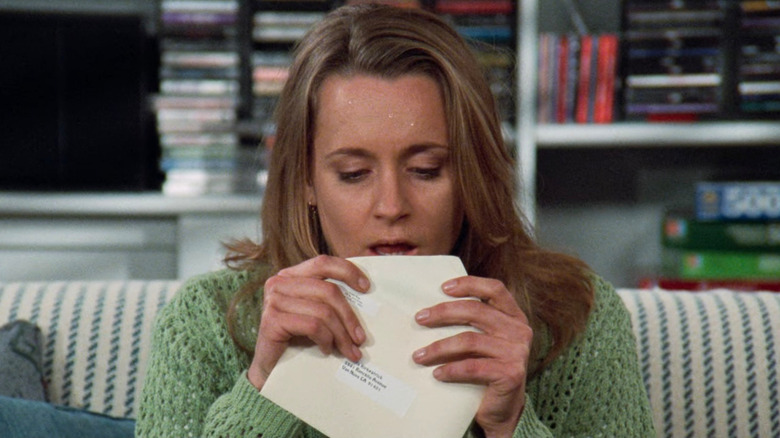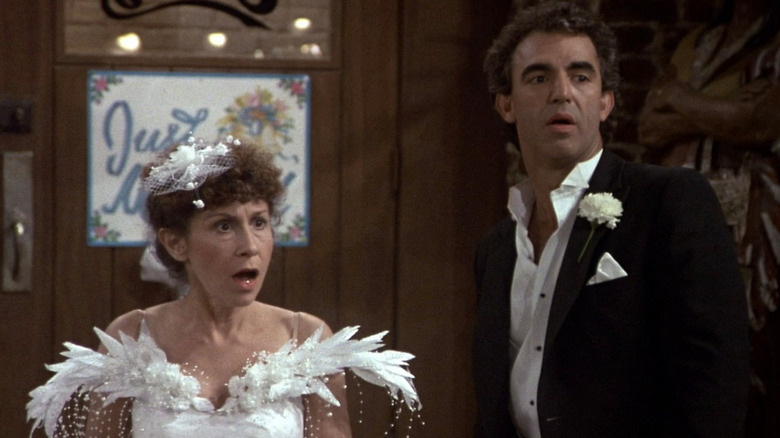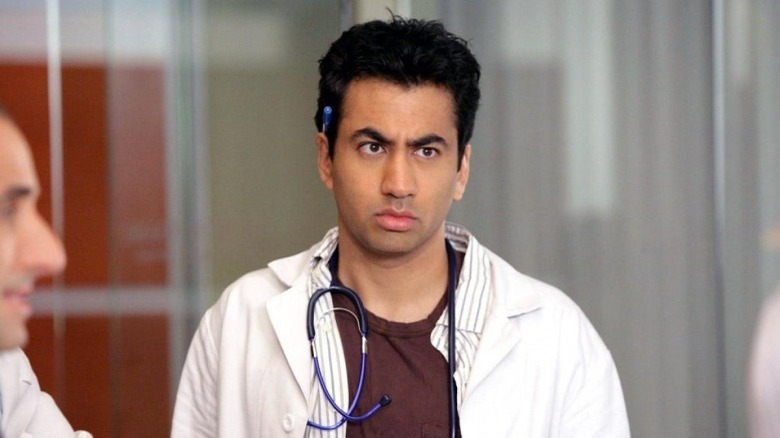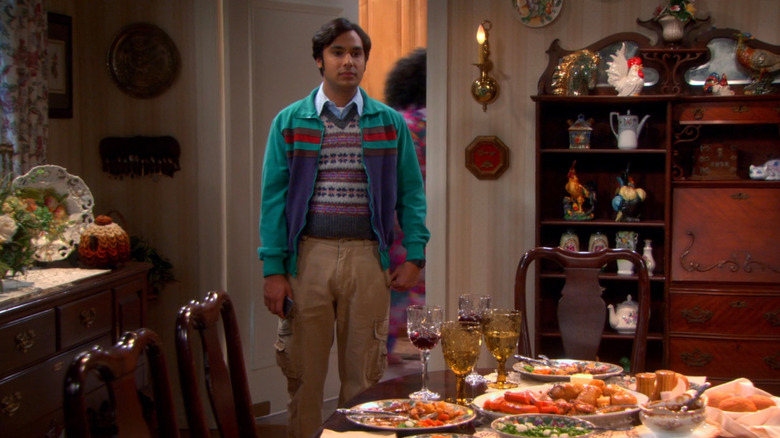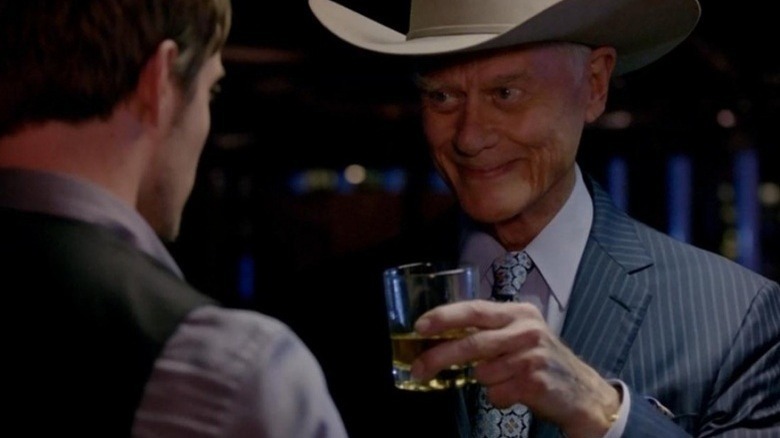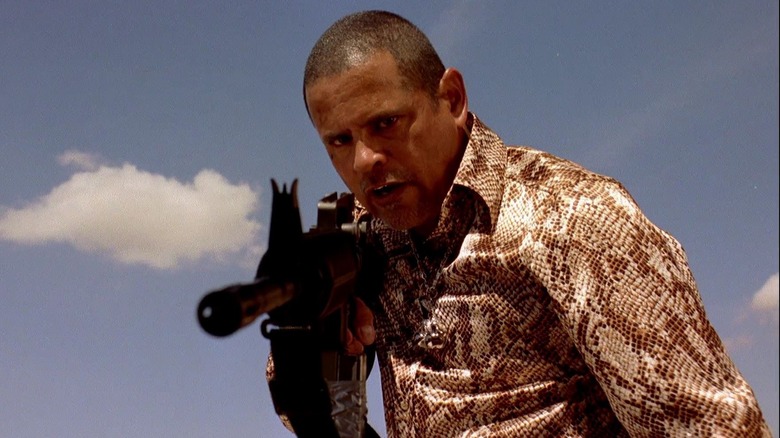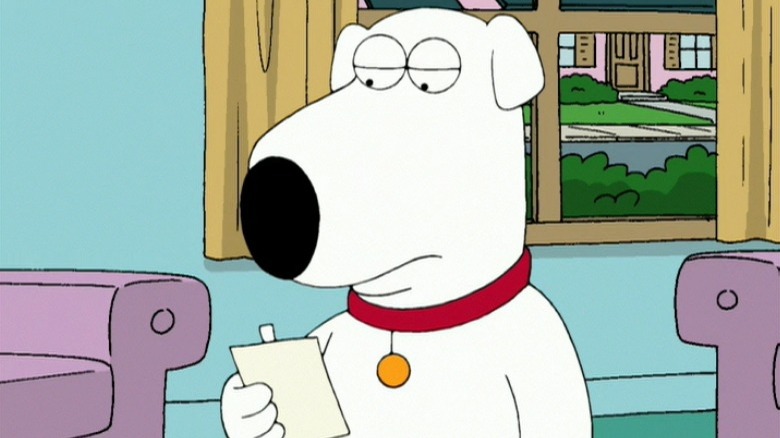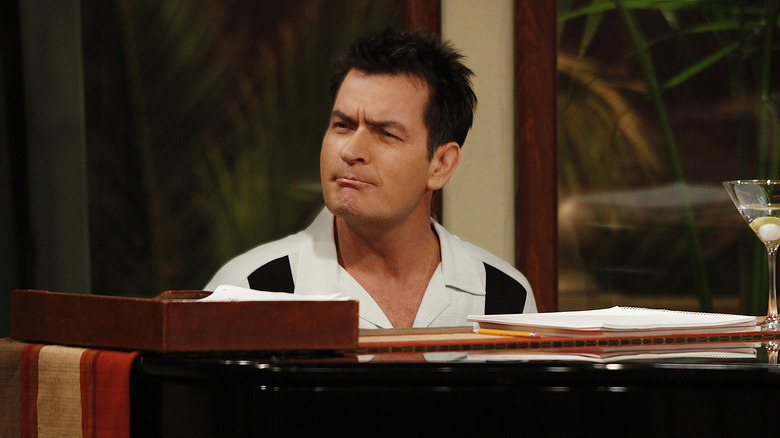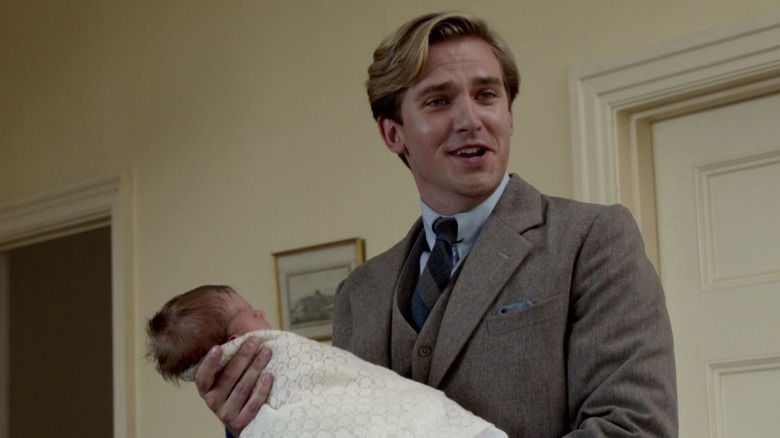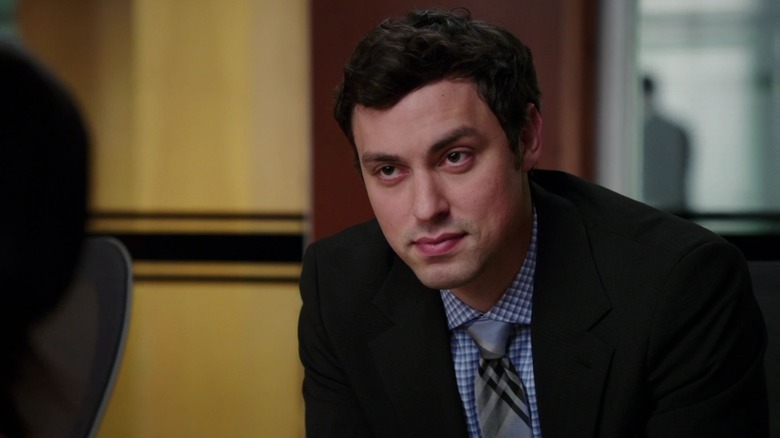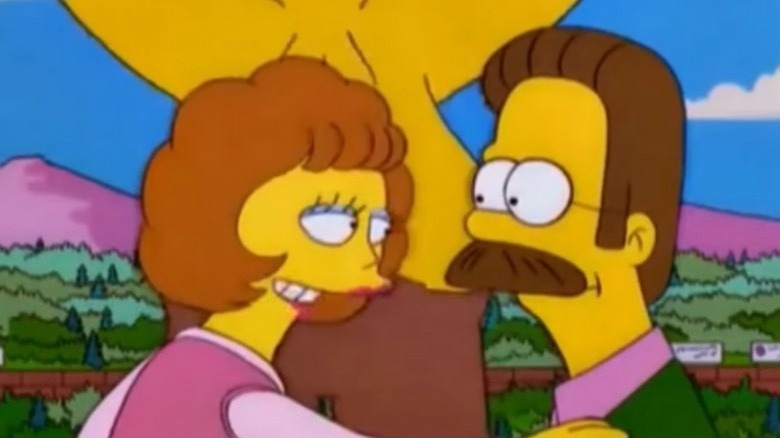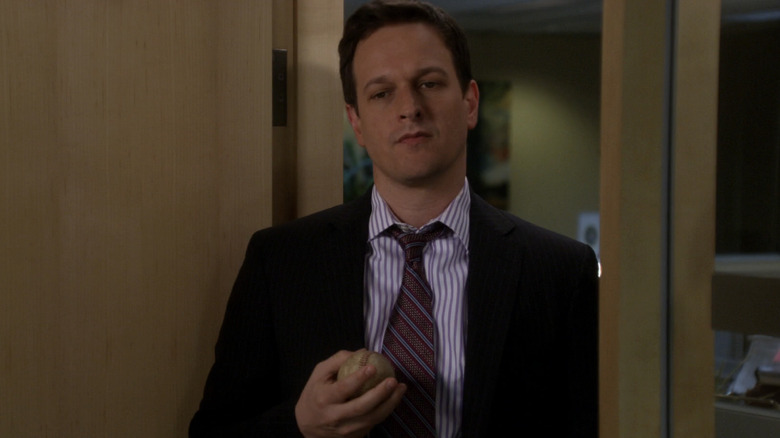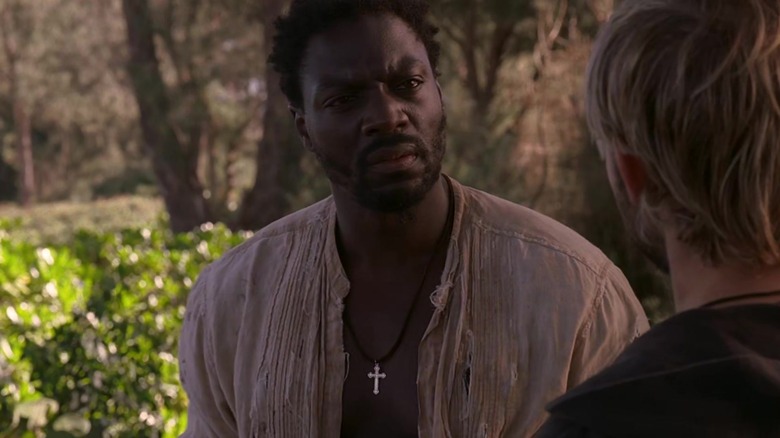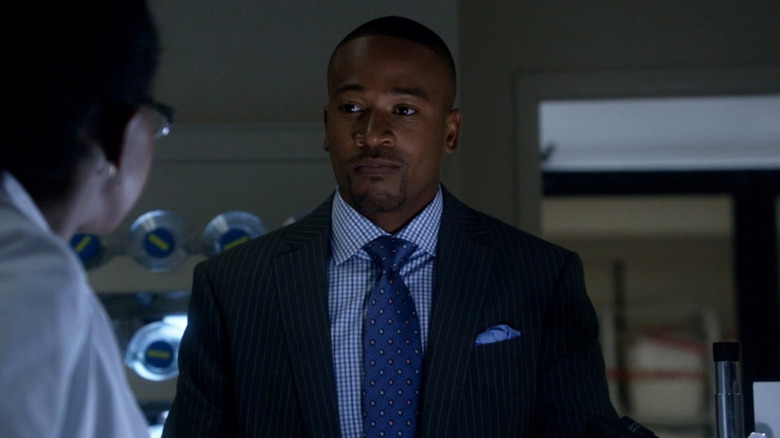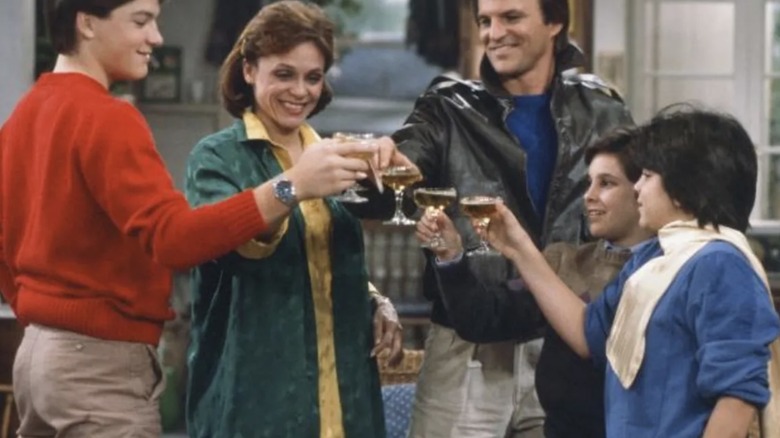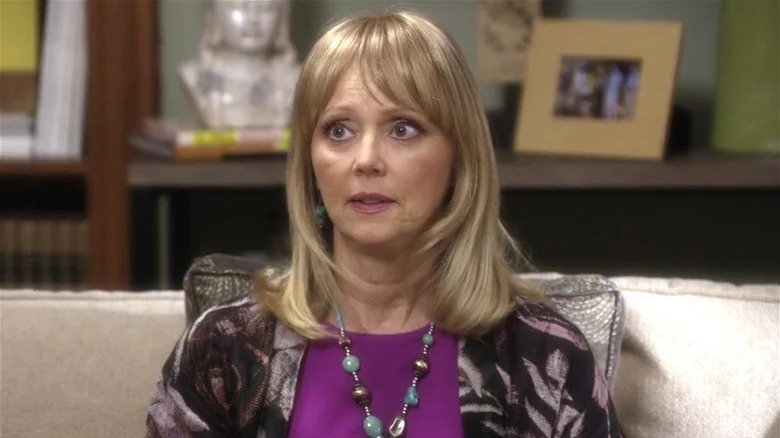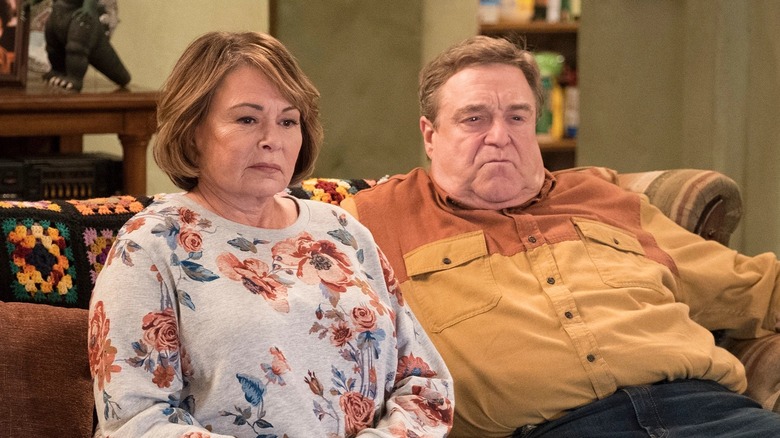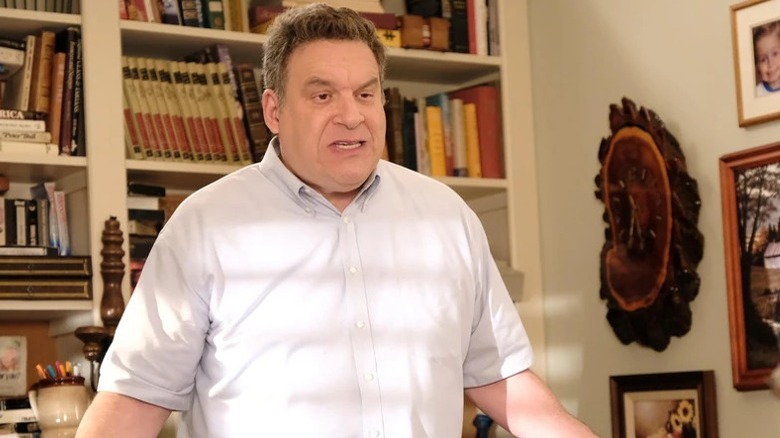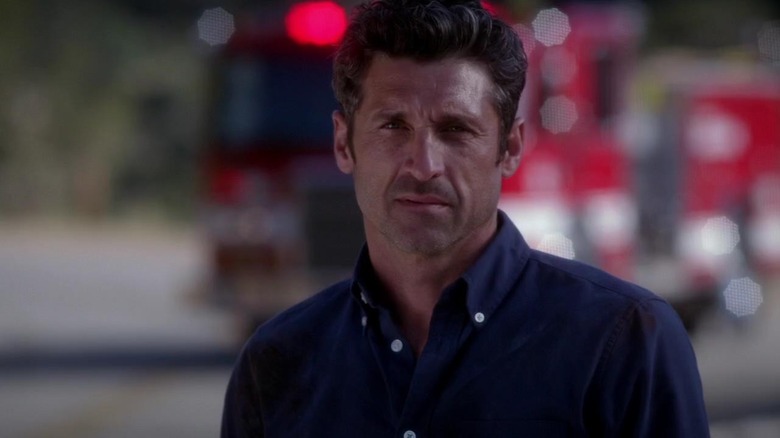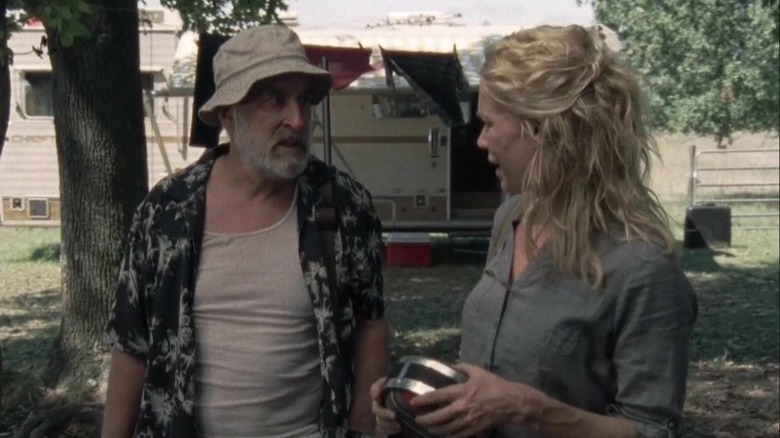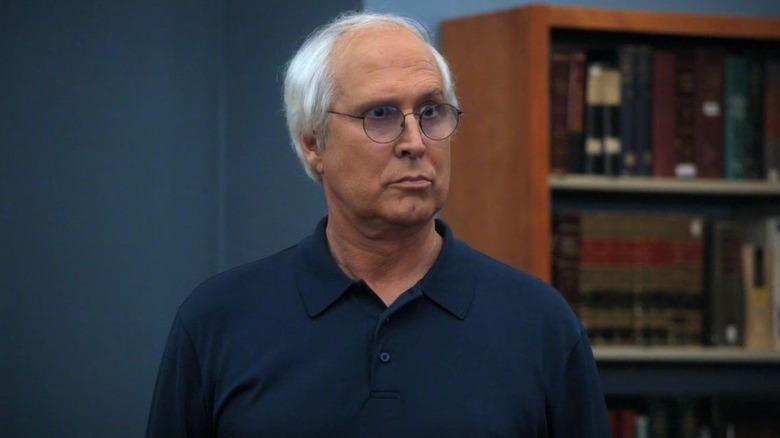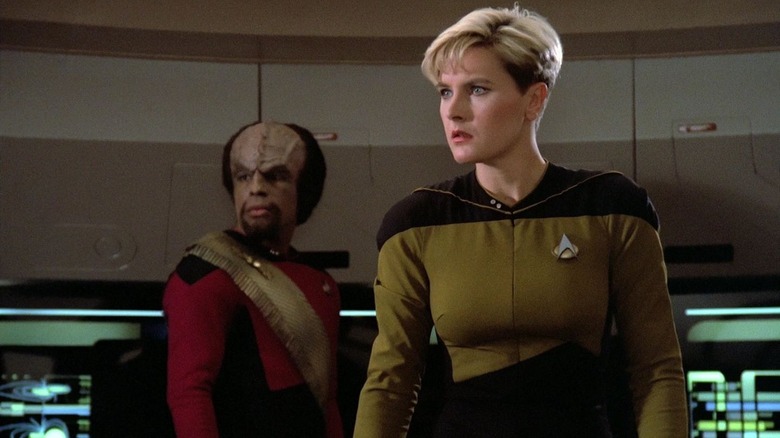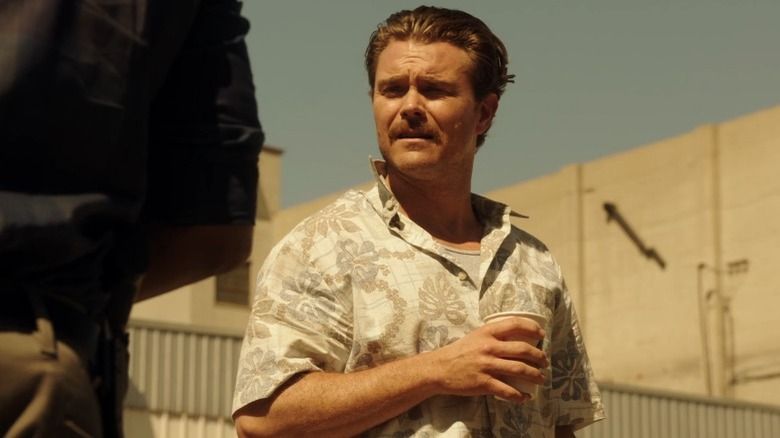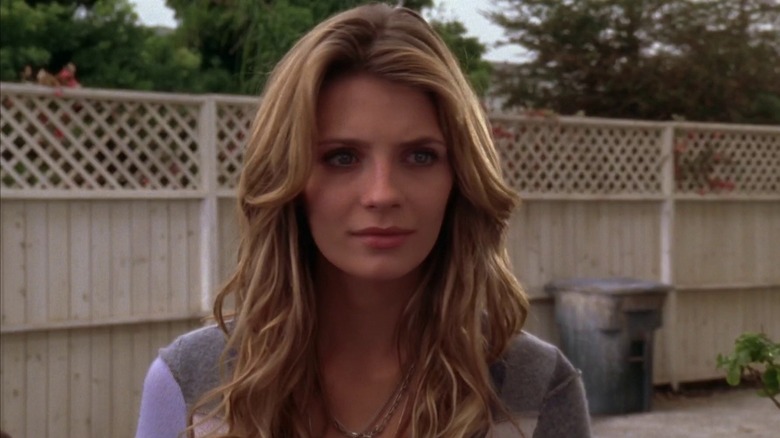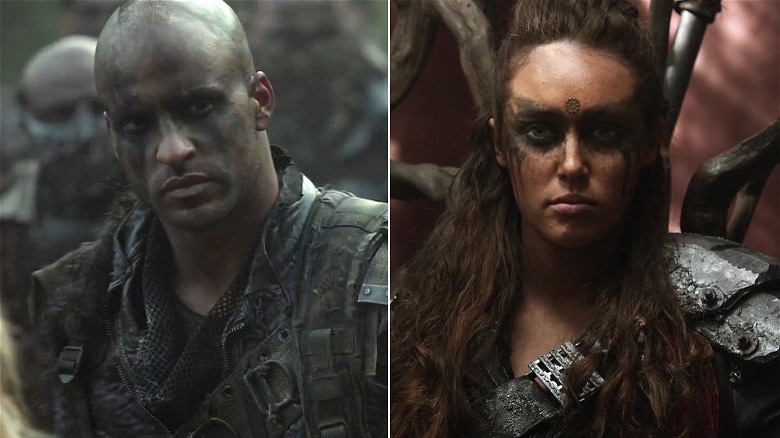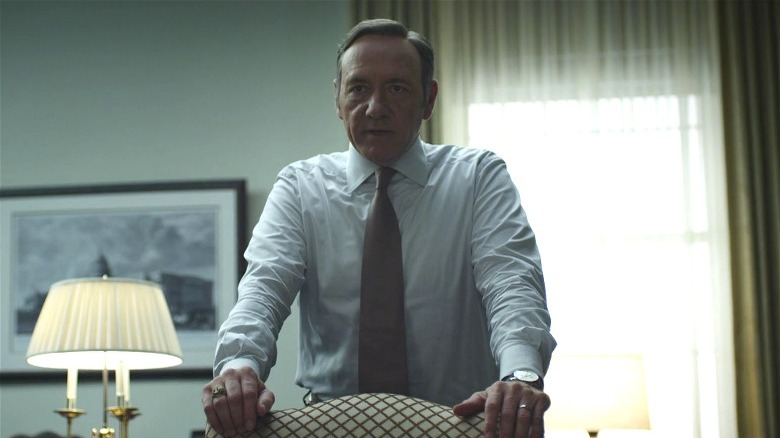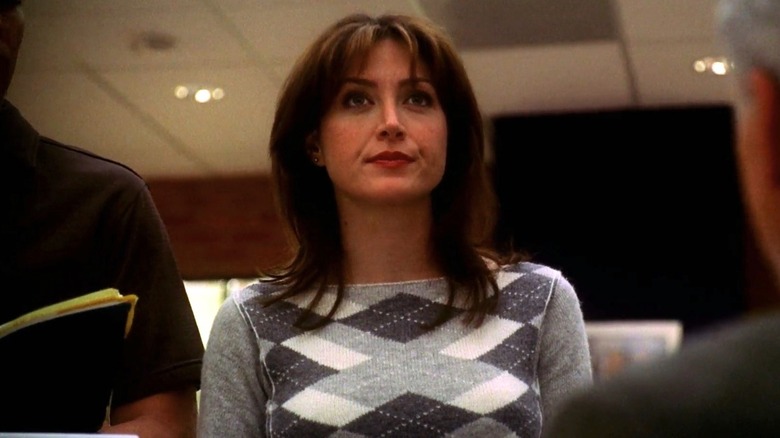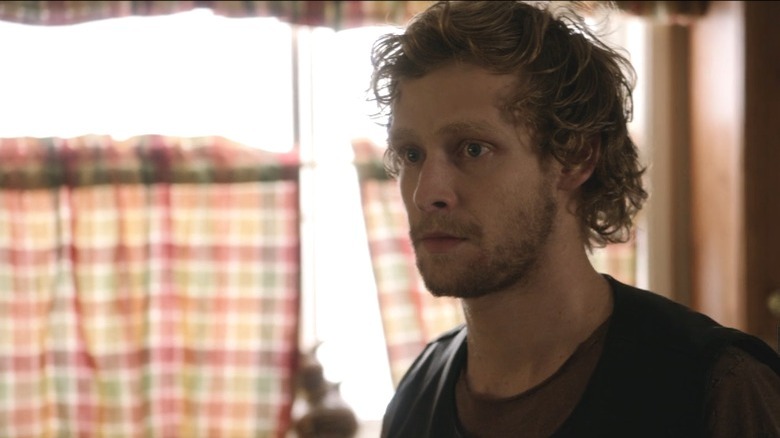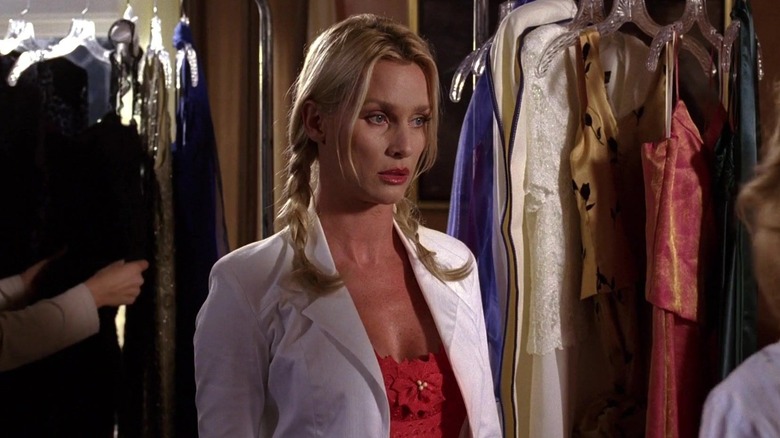The Real Reasons These TV Characters Were Killed Off
Producers kill off TV show characters for a number of reasons. For example, an actor or actress might be difficult to work with, and show brass and co-stars want to get rid of them with very little chance for a comeback. Sometimes it's no hard feelings at all, and just business — the show may need a major character to die in order to pack an emotional wallop and sustain the interest of a dwindling audience. Or, it could just be that it was part of the story's long-term plan all along.
While we'll probably never know the reasons for the death of every single character who has ever died on a TV show, some stories from behind the scenes just couldn't stay under wraps. Here are some of the most scandalous reasons why some well-known characters on well-known TV shows kicked the fictional bucket.
Prue Halliwell - Charmed
Shannen Doherty is arguably better known for being difficult to work with than she is for her acting. Her feud with co-star Jennie Garth on "Beverly Hills, 90210" led to her dismissal from that hit show. After Tori Spelling witnessed "a fistfight" between the two co-stars, she asked her father, "90210" producer Aaron Spelling, to axe Doherty. Her character, Brenda Walsh, moved out of the show's sunny ZIP code.
Just a few years later, however, Aaron Spelling surprisingly cast Doherty in another project, the WB supernatural drama "Charmed." History repeated itself: Doherty quit the show in 2001 amid reports of a feud with co-star Alyssa Milano. Doherty told Entertainment Tonight that her actual reasons for departure were "too much drama on set and not enough passion for the work." Onscreen, the fates of "Charmed" witches Prue (Doherty) and Piper (Holly Marie Combs) were left unclear with a third-season-ending cliffhanger. When Season 4 began, it was revealed that Piper lived, while Prue didn't.
James Evans, Sr. - Good Times
There weren't many shows about working class people or African-American families on TV in the early 1970s, which is part of what made "Good Times" such a welcome arrival upon its debut in 1974. The show's entire dynamic changed, however, in 1976, with the episode in which Florida Evans (Esther Rolle) reads a letter informing her of the death of her husband James. What most people don't know about this devastating moment is that John Amos, who played James, was as surprised to hear of his character's death as anyone — he'd just been told his services would no longer be needed.
In an interview with the Archive of American Television, Amos has since opened up about why he was fired from the popular sitcom, saying he had issues with the show's direction. "I felt too much emphasis was being put on J.J. and his chicken hat and saying 'dy-no-mite' every third page," argued Amos, referring to breakout star Jimmy "J.J." Walker and his catchphrase, "when just as much emphasis and mileage could have been gotten out of my other two children." Of course, Amos admits that he "wasn't the most diplomatic guy" and probably approached producers the wrong way.
Chef - South Park
"South Park" has long offered screen time to the exploration of many faiths and religions... in order to take satirical jabs at them, that is. In the early seasons, Jesus Christ was a character who lived in the show's sleepy mountain town and hosted a cable access talk show, and over "South Park's" two-plus decades on TV, creators Trey Parker and Matt Stone have knocked around Judaism, Islam, Mormonism, and even atheism. But the time they took on the Church of Scientology, the faith system popularized by science fiction writer L. Ron Hubbard and followed by a gaggle of high-profile celebrities such as Tom Cruise and John Travolta, well, that was too much for "South Park" cast member Isaac Hayes.
The soul music legend voiced Chef for nine years, and quit the show when he felt the episode "Trapped in the Closet" savagely mocked his religion: Scientology. "There is a place in this world for satire, but there is a time when satire ends and intolerance and bigotry towards religious beliefs of others begins," Hayes said in a statement. Nine days after Hayes quit "South Park," the show addressed the Chef problem. After revealing that he'd been brainwashed by a sex cult called the Super Adventure Club, the show killed off Chef in a gruesome fashion — he catches fire, falls off a bridge onto jagged rocks, is impaled on a branch, and devoured by a bear and a lion.
Dr. George O'Malley - Grey's Anatomy
T. R. Knight left "Grey's Anatomy" in 2009 after five seasons with the extremely popular medical soap, despite the fact that his character — shy, innocent, lovelorn young doctor George O'Malley — was a fan favorite. (Not to mention that the role earned Knight an Emmy nomination in 2007.) Knight told Entertainment Weekly that he thought something was up with the show's first nine episodes of the 2008-09 season: He landed only 48 minutes of screen time, less than half of colleague Sandra Oh. Rather than ask his boss, producer Shonda Rhimes, just what was happening, he walked away instead. "My five-year experience proved to me that I could not trust any answer that was given," he said. "And with respect, I'm going to leave it at that."
Perhaps he angered Rhimes, what with the horrific way the show killed off George: He's hit by a bus, admitted to the very hospital where he worked, and, after his doctor friends finally recognize him, he's pronounced brain-dead and passes away. Couldn't George have just decided to stop being a doctor and work as a barista or something?
Ana Lucia Cortez and Libby Smith - Lost
From the outside, it may appear that "Lost" characters Ana Lucia Cortez and Libby Smith (portrayed by Michelle Rodriguez and Cynthia Watros, respectively) met their ends due to bad P.R. from offscreen misbehavior. During the middle of the show's second season, both actresses were arrested on suspicion of drunk driving on December 1, 2005, after failing field sobriety tests. Not long after, both characters died, and both at the hands of Michael Dawson (Harold Perrineau).
In actuality, the arrests didn't affect the show at all. In an interview with TV Guide, "Lost" co-creator Damon Lindelof said that the characters' deaths had already been written, and, in the case of Ana Lucia Cortez, out of necessity: Michelle Rodriguez only wanted to do one season of the show. "She wanted to do one kickass arc, as she described it, and we basically started to wrap our brains around her energy and say, 'Yeah, we'll bring you on the show and then we'll kill you off at the end of the year.'" However, her character also happened to die at the same exact time as Watros' Libby Smith, a mere coincidence regarding the actresses' offstage arrests. "Basically then we said, 'Oh, s***. Both Michelle and Cynthia were busted the same night for DUI and we've got this story point coming up where they essentially both get shot at the same time, so it's going to look like this is the "Lost" producers' attempt to say, Don't drive drunk!'"
Susan Ross - Seinfeld
"Seinfeld" could often be callous and cruel — that was the appeal of the show, what with characters stealing bread from old people, versus the sickly sweet antics of contemporary sitcoms like "Full House." The show outdid itself in a 1996 episode when it killed off a major recurring character, simultaneously shocking viewers and relieving George Costanza (Jason Alexander). His fiancée, Susan Ross (Heidi Swedberg), died at the end of the seventh season, having ingested a toxic amount of glue from licking super-cheap wedding invitation envelopes (the ones George picked out).
Apparently, George, who'd wanted out of the engagement, wasn't the only one happy to hear the news of the character's death. In an interview with Howard Stern (via The Hollywood Reporter) several years later, Alexander revealed that Swedberg was difficult to work with, but not in the traditional sense. "Her instincts for doing a scene, where the comedy was, and mine were always misfiring." Alexander explained that he'd then recalibrate his acting to match Swedberg's. "And I'd adjust, and then it would change."
And he wasn't the only one on set who felt that way. Alexander related how his costar Julia Louis-Dreyfus agreed with him, casually remarking, "Don't you wanna just kill her?" Once writer Larry David heard this, that was the end of Susan Ross.
Eddie LeBec - Cheers
Poor Carla Maria Victoria Angelina Teresa Apollonia Lozupone Tortelli LeBec (played by Rhea Perlman). Just when it looked like she'd finally found true love with hockey player Eddie LeBec (Jay Thomas), the poor doofus went and got himself killed. While "Cheers" was generally one of the more mature, reserved comedies on television during its 11-year run, the writers scratched their wacky itch when it came time to kill Eddie and unveil the aftermath of his death. He's killed in a bizarre Zamboni accident, setting up a wacky chain of events that led to Carla meeting Eddie's secret other wife during the funeral. The character's demise seemed to entirely come out of left field and with more sour grapes than a bottle of wine that Frasier Crane would adore. In 2006, "Cheers" writer Ken Levine revealed on his blog just why they killed off Eddie LeBec — and in such a perplexing way.
Thomas, who also worked as a radio DJ, responded to a caller who asked him how it felt to act on "Cheers." "It's brutal," Levine recalled Thomas quipping. "I have to kiss Rhea Perlman." That got him fired, and it got Levine and writing partner David Isaacs to compose the Eddie LeBec death episode.
Lawrence Kutner - House
While "House" had its lighter moments (like how Dr. House savagely mocked even his closest friends), it could get pretty dark too. One example: the fate of eager diagnostic medicine fellow Lawrence Kutner. The character had to make a hasty exit when his portrayer, Kal Penn, embarked on a political career of sorts partway through the show's run in 2009, taking a job with the brand-new Obama administration. His official job: associate director of the White House's public liaison office.
Not wanting to pass up the opportunity to wring a bit of drama out of his departure, the show's writers opted to have the Kutner character commit suicide. Chilling as that end may have been, it seems that there were no hard feelings between the actor and the showrunners. Penn came back to reprise his role as Kutner for "House's" series finale in the form of a hallucination.
Mrs. Wolowitz (a.k.a. Howard's mom) - The Big Bang Theory
Even though we never saw her face, we all know her voice. Debbie Wolowitz was a mainstay of the hit CBS series The "Big Bang Theory." Mrs. Wolowitz joined Charlie from "Charlie's Angels" and Carlton the Doorman from "Rhoda" in the canon of heard-but-never-seen TV characters. She never appeared onscreen, merely shouting at Howard (Simon Helberg) from across their house in a booming, raspy New Jersey accent. Her never being seen became one of "Big Bang's" signature running gags, as writers could make up all kinds of physical traits for Mrs. Wolowitz that they'd never have to actually show; she apparently had a mustache and a neck that measured 43 inches around.
A real person voiced Mrs. Holowitz, of course, and that was late character actress Carol Ann Susi. She died of cancer at age 62 in November 2014. Mrs. Wolowitz passed away (offscreen, in her sleep) in a February 2015 episode of "The Big Bang Theory."
J. R. Ewing - Dallas
The only character to appear in every episode of the original "Dallas," J. R. Ewing was famously shot in the cliffhanger episode "A House Divided," which left America wondering "Who Shot J.R.?" all summer. Though he survived that assassination attempt (Kristin Shepard, J.R.'s mistress and sister-in-law, was to blame), a second shooter finally felled the infamous oilman during the second season of the series' 2010s revival on TNT. While that plot twist could have served as a shocking and clever callback to the original show's most famous moment, writers had to include it out of necessity. Larry Hagman, who played J.R. Ewing on both iterations of the series, lost his battle to cancer in November 2012. "Dallas" 2.0 was still in production, forcing the creative staff to both explain his sudden absence while also hurriedly writing the character off the show. The end came with "The Furious and the Fast," which aired several months after Hagman's death, and used pre-existing footage to cobble together his character's exit story. So who shot J.R. that time? In classic soapy, "Dallas" fashion... J.R. did, sort of. His top lieutenant Bum (Kevin Page) later revealed that J.R. had cancer, and that he asked Bum to steal a gun from rival Cliff Barnes (Ken Kercheval) to frame him.
Tuco Salamanca - Breaking Bad
Who knows how many "Breaking Bad" viewers found the sheer intensity and violence of Tuco Salamanca to be too much to handle? Joining them in their extreme discomfort: actor Raymond Cruz, who played the character on four episodes of the classic series, up until Tuco's death at the hands of crusading DEA agent Hank Schrader (Dean Norris). Essentially, actor Raymond Cruz, who portrayed the psychotic drug dealer, found the character very draining to play. He explained in an interview with Washington's WTOP in 2015, saying, "I wasn't sad to see Tuco go, because it's such a hard part to try to pull off. What you're watching is condensed. That's days and days of shooting scenes for 12 to 14 hours. It's a lot of hard work. It's so physically, emotionally, mentally draining, so when they finally killed him, I was happy." Cruz clearly harbored no ill will at the show's creative staff, or even his character, because he returned to the role for "Better Call Saul," the "Breaking Bad" prequel series.
Brian Griffin - Family Guy
"Family Guy" has done countless shocking things over its 400-plus episodes — being shocking is kind of its thing. But maybe the most audacious moments came via "Life of Brian," a November 2013 episode in which martini-drinking, novel-writing, talking dog Brian Griffin dies after getting hit by a car. The Griffins are understandably gutted, and they tentatively accept a new dog named Vinny into the family. But then, two episodes later, Brian returned. This left viewers wondering: if the producers were going to bring the beloved character back so soon, why kill him off at all? According to show creator Seth MacFarlane, Brian's death was something of an experiment. "We thought it would create a little bit of a stir," MacFarlane said at a Television Critics Association press tour (via Entertainment Weekly). "It did what it was designed to do — it reminded people this is still a show where anything that can happen despite the fact it's been on for awhile." (Also, "Family Guy" is a cartoon, where the laws of life and death don't have to apply.)
Charlie Harper - Two and a Half Men
The tabloids could barely keep up with Charlie Sheen in early 2011. Not long after leaving drug rehab, Sheen partied in Las Vegas for a weekend with an adult film star and then returned to rehab. "Two and a Half Men" thusly (temporarily) shut down production After Sheen denied any problems on "The Dan Patrick Show." "Two and a Half Men" creator Chuck Lorre gently mocked Sheen on his title card during an episode of his sitcom ("If Charlie Sheen outlives me, I'm gonna be really p*****.") That set Sheen off, who went on "The Alex Jones Show" to call Lorre a "charlatan" and alarmingly appointed himself the "new sheriff in town." CBS then went ahead and ended production on "Two and a Half Men" for the season. Sheen then publicly wished Lorre "nothing but pain in his silly travels, especially if they wind up in my octagon."
When the show returned in fall 2011 for Season 9, Sheen was out, and Ashton Kutcher was in. As for his character, womanizing jingle writer Charlie Harper, he died offscreen, reportedly hit by a train and eulogized in an onscreen funeral. (Of course, the show's final episode in 2015 featured a Sheen lookalike playing Charlie Harper, revealing that he hadn't really died at all. And then a piano fell on his head, killing him for real this time.)
Matthew Crawley - Downton Abbey
At the end of Season 3 of "Downton Abbey," the will-they-or-won't-they of Lady Mary (Michelle Dockery) and Matthew Crawley (Dan Stevens) was finally resolved when the two were married and quickly became pregnant with their first child and future lord of the manor. Mary went into labor, and after meeting his newborn son, Matthew jumped into a car to share the news — but the car crashed, and Matthew was instantly killed. It was a shocking TV death, but one that had to happen. Dan Stevens had asked to leave the extremely popular period series in order to pursue a movie career — he'd been one of the breakout stars of the series and wanted to cash in on other opportunities. Ultimately, a movie career hasn't really panned out yet — he was in bombs such as "The Fifth Estate" and "The Cobbler." In 2017, he returned to TV, starring in FX's "Legion."
Dr. Sweets - Bones
John Francis Daley, arguably best known for his performance as a child in "Freaks and Geeks," was part of the cast of Fox's long-running procedural drama "Bones" from almost the beginning, but not to the end. As Dr. Lance Sweets, Daley played a psychologist and behavior expert who helped the crime fighters of the series in their investigations. Over the years, Daley developed a second career as one of the most sought-after comedy screenwriters in Hollywood, working on the scripts for "Horrible Bosses," "The Incredible Burt Wonderstone," and "Cloudy with a Chance of Meatballs 2." In 2014, Daley was offered the chance to not only write the remake/reboot of "National Lampoon's Vacation," but to direct it as well. Daley asked for a few months off from "Bones" to do the movie, but the writers couldn't think of a good way to explain a prolonged absence. So his character took a bullet from a bad guy and died.
Maude Flanders - The Simpsons
Just like live-action actors, voice performers have to renew their contracts every few years. The cast of "The Simpsons" has gone through some major re-negotiations over the years. In 1998, Fox threatened to replace the actors rather than meet their salary demands. Things have worked out every time for the main cast, but not for Maggie Roswell. From the show's beginnings in 1989 until 2000, she provided the voices for several secondary "Simpsons" characters, including do-gooder neighbor Maude Flanders. At the beginning of the 1999-2000 season, Maude suddenly started making fewer appearances. When she did appear, her voice was different, since Roswell had been replaced. In a February 2000 episode, Maude was killed in a shocking and ridiculous fashion, falling off a grandstand after being shot by a T-shirt cannon. So why the replacement and then the send-off? Fox said Roswell quit "The Simpsons" because she didn't want to commute from her home in Denver to Los Angeles for recording sessions anymore. But according to Roswell, it's because she asked for a raise.
Will Gardner - The Good Wife
Josh Charles was a huge part of why "The Good Wife" turned in such compelling drama each week. His character, Will Gardner, was a brilliant attorney in the show's courtroom scenes, and he was also a foil and romantic interest for Alicia Florrick (Julianna Margulies). That and the fact that "The Good Wife" didn't usually contain a lot of violence meant it was pretty shocking when Will was brutally shot in a courtroom scene in a 2014 episode. But creators Robert and Michelle King didn't have any animosity toward Charles. Before the 2013-14 season began, Charles knew his contract would be up, and he let the Kings know that he'd like to move on at the end of the year so they could actually plan an explosive exit for Will. "I was just ready to kind of move on," Charles said on "The Late Show with David Letterman." As for his character's death, "I think it was great for the show and also I think was a proper goodbye to the character, so that was special."
Mr. Eko - Lost
One of the biggest new shows of the 2004-05 season was also among the most innovative: ABC's time- and mind-bending desert island sci-fi adventure series "Lost." Many of its cast became instant stars on the way to the show winning the Emmy for Outstanding Drama Series. Other actors on the show didn't enjoy the process of making the series at all. Adewale Akinnuoye-Agbaje, for example, who played the mysterious and conflicted Nigerian priest/thug Mr. Eko, left the series in Season 3. Why? Well, "Lost" filmed in Hawaii, and while this might be hard to believe, Akinnuoye-Agbaje hated living in Hawaii. He asked to leave the show, and long-term plans for Mr. Eko were abruptly halted. The character was killed off, a victim of "the Monster."
Harrison Wright - Scandal
Character deaths were a semi-regular occurrence on "Scandal." Anyone who got caught up in the high crimes and political machinations of Olivia Pope (Kerry Washington) and her relationships with the First Family instantly saw their life span decrease by a few years. Helping her help high-powered individuals were fellow fixers, or "gladiators," including Harrison Wright (Columbus Short). Like so many other "Scandal" standouts, he went and got himself killed by Olivia's evil father Eli Pope (Joe Morton), a top-secret CIA operative. At the end of Season 3, Harrison finds out Eli killed the president' son, and, well, he knew too much to live.
In April 2014, just two days after the episode aired, Short assured viewers that his character was really dead: He'd quit the show. After enduring a series of legal problems (including a bar fight and charges of spousal battery, according to TMZ), Short admitted on "Access Hollywood Live" (via New York Daily News) that he'd left "Scandal" due to a cocaine issue. "I had a lot on my plate, and you know, I was using unhealthy ways to kind of self-medicate and deal with a lot of heavy stuff in my life," Short said. He added that "Scandal" boss Shonda Rhimes allowed for him to be written out so that he could "get my stuff together."
Valerie Hogan - Valerie
In 1986, NBC nailed down Emmy-winning "Rhoda" and "The Mary Tyler Moore Show" star Valerie Harper's return to television. The vehicle: "Valerie," a very much of the time family sitcom about working mom Valerie Hogan raising three rambunctious boys. It was a pleasant enough, innocuous show... until it killed off the title character. She died offscreen in a car accident between season two and season three, and in September 1987, the newly retitled "Valerie's Family" (and then "The Hogan Family") found her widower and kids dealing with the aftermath. Also, Sandy Duncan had joined the cast as Aunt Sandy, a live-in mother figure.
Why such a sudden and brutal departure for Valerie Hogan? Because Valerie Harper wanted more money. In the summer of 1987, she lobbied production company Lorimar Television for a bigger salary. It refused, so Harper didn't show up to film the first episode of season three. Both sides then reached what they thought was a deal, until Harper sat out shooting in protest once again. Lorimar fired Harper from her show — and publicly announced that they'd kill off her character — and then filed a $70 million breach of contract suit. Harper countersued for the same thing, requesting $180 million in damages. Ultimately, a jury sided with Harper and awarded her $1.4 million.
DeDe Pritchett - Modern Family
Even after more than 30 years, Shelley Long is still best known for her role as Diane Chambers on "Cheers," a character and show she famously left in 1987 for a film career. She never did become an A-list movie star, but found one of her biggest gigs in a long time with the recurring role of DeDe Pritchett, the emotionally and geographically distant mother of Claire (Julie Bowen) and Mitchell (Jesse Tyler Ferguson) on "Modern Family." Long prominently bowed out of this show, too, although this time it wasn't her idea — the "Modern Family" writers just wanted to explore the effects of death on the family unit.
Before the beginning of the show's 10th season in 2018, show co-creator Christopher Lloyd told Entertainment Weekly that before long, a "significant character" on the show would die. "We do deal with a death, which is certainly a topic that families have to deal with." Indeed, on the show's Halloween episode, Claire gets a call from her stepfather, and she, along with viewers, learns that DeDee Pritchett died in her sleep.
Roseanne Conner - Roseanne/The Conners
For many years, Roseanne Conner was one of the most beloved characters on TV. She was the matriarch of the Conner family, which included her husband Dan and kids Becky, Darlene, D.J., and Jerry. She was known for being sassy, bossy, and loud, and for trying to run the Conner household however she pleased.
"Roseanne's" original run took place from 1988–1997, during which time Barr earned the nomination for several awards and worked her way into the hearts of millions who watched her TV family every week. In March of 2018, a reboot of the series premiered on ABC to much fanfare and delight, but the honeymoon was pretty short-lived.
Just a week after ending its first season back as a reboot, ABC pulled the plug on "Roseanne" again following a series of distressing and problematic tweets from Barr. The show was supposed to be renewed for a second season of the reboot, but ABC abruptly canceled it following the tweets. Just six months later, the series was restarted again, this time rebranded as "The Conners," sans Barr. In "The Conners," Roseanne is killed off-screen through an opioid overdose in the premiere, forever ending Barr's tenure as Mrs. Conner. "The Conners" has continued for five seasons, winning a Primetime Emmy in 2021.
Murray Goldberg - The Goldbergs
For 10 hilarious seasons, "The Goldbergs" was one of the most popular family TV shows in the ABC lineup. The show chronicles (and parodies) family life of the 1980s, often throwing in pop culture references like Bob Ross, "ALF," and "Star Wars." The Goldberg family is made up of parents Murray and Beverly, grandparent Albert "Pops" Solomon, and kids Adam, Barry, and Erica. Narrating the show is the "adult" version of Adam, voiced by Patton Oswalt.
Jeff Garlin played the role of Murray from 2013–2021, earning a nomination from the Online Film and Television Association for Best Actor in a Comedy Series in 2021. However, while everything went well on camera, behind the scenes, it was a different story. Following a three-year HR investigation, Garlin left the cast in December 2021. While no specifics have arisen about what happened, Garlin appeared to be at odds with the rest of the cast.
After Garlin left, "The Goldbergs" initially kept Murray on the series. The show did not replace Garlin, but merely used old footage and voiceovers to make it appear as if he were still there. However, the scenes with Murray strained credulity. Prior to Season 10, the series decided to kill him off for good. The Goldberg family finally ended their run after Season 10 short of both the family's patriarchs, as actor George Segal's real-life death had also prompted the show to kill off "Pops," too.
Dr. Derek Shepherd - Grey's Anatomy
Looking back, it's hard to believe that "Grey's Anatomy" first debuted more than 15 years ago in 2005. For the first 11 seasons, fans fell in love with Dr. Derek Shepherd, nicknamed "McDreamy," who was played by Patrick Dempsey. His character is at one point the chief of medical surgery for the hospital. He marries Dr. Meredith Grey–the series' namesake–and they have three children together.
However, Shepherd dies in Episode 21 of Season 11, after progressively being written out of the show over the previous episodes. His character dies as the result of a horrific car crash, but his exit was more related to Dempsey than Shepherd. Reportedly, Dempsey clashed with show creator Shonda Rhymes and some of his co-stars while shooting the show, at times complaining about the long hours and working conditions.
Dempsey was only halfway through his new two-year contract when his character was killed off, but the on-set turmoil was just too much. Still, a few years later Dempsey reprised his role as Shepherd for one episode, the premiere of Season 17. He visited his wife from the afterlife, finally giving closure to his character.
Dale Horvath - The Walking Dead
Fans of the show "The Walking Dead" have no choice but to get used to losing main characters throughout the series. From Carl and Glenn to Beth and Hershel, there's no shortage of traumatic deaths on the zombie series. One of the earlier and more unexpected deaths was that of Dale Horvath (Jeffrey DeMunn). Dale is the father figure of the group, known for dispensing wisdom and keeping a calm demeanor. His death was pretty shocking for many fans.
According to an interview DeMunn gave with Cleveland.com, it was actually DeMunn himself who orchestrated Dale's exit from the series. DeMunn got the job on "The Walking Dead" due to his connection with executive producer and showrunner Frank Darabont, with whom DeMunn had previously worked on "The Blob," "The Shawshank Redemption," and "The Majestic." However, Darabont was fired from "The Walking Dead" in 2011 following a dispute with AMC Networks, which was later the subject of a lawsuit.
As DeMunn explained, when Darabont was let go, DeMunn asked for Dale to be killed off the show. He no longer wished to work on the series without his longtime colleague, leading to Dale's death on "The Walking Dead." It was an unfortunate death for fans of the series, but certainly better than watching DeMunn acting on a show he hated.
Pierce Hawthorne - Community
Chevy Chase's role as Pierce Hawthorne on the college comedy series "Community" lasted for four seasons and was full of ups and downs. While many fans loved his character's deadpan humor and insensitive nature, others felt turned off by his controversial and at times problematic jokes. Still, Hawthorne was a core character on the series up until his death off-screen following the end of Season 4. His character did make one brief posthumous appearance as a pre-recorded hologram in the Season 5 finale, but did not return to the series again for the rest of the final two seasons.
Interestingly, while Hawthorne managed to survive through the end of Season 4, Chase actually left midway through the season. His departure was the product of conflicts between Chase and his co-stars, which included him using a racial slur during the filming for what would end up being his final season. News of Chase saying the slur leaked just before the season premiered, but it was not until a month later that he was formally let go.
During a 2021 interview with "Inside Of You," cast member Joel McHale elaborated on the problems Chase had on set. According to McHale, Chase made it clear he did not like working the long hours necessary each week, essentially requiring his scenes to be shot first so he could leave early. While his acting was hilarious, it just proved too much to keep him on the show.
Lt. Natasha Yar - Star Trek
For most of the first season of "Star Trek: The Next Generation," Denise Crosby played the character of Lt. Natasha "Tasha" Yar, the U.S.S. Enterprise-D's chief of security. After appearing on-screen for most of the season, her character abruptly died during episode 23, "Skin of Evil," when the evil Armus creature killed her. However, she does later make brief appearances in both Season 3's "Yesterday's Enterprise," where she appears on the Enterprise after it enters an alternate timeline through a rift in time, and in the series finale "All Good Things...," where she can be seen in past sequences.
Per an interview that Crosby gave in 1996 with StarTrek.com (via Internet Archive), part of the reason the writers killed Yar off was due to Crosby wanting to leave the show. She felt her character lacked depth and "was just stage dressing." Crosby never regretted her decision to leave, but said that her return in Season 3 was actually her favorite episode of the series. Crosby was hoping to return to the Star Trek universe in "Star Trek: Deep Space 9," though it did not end up happening.
Martin Riggs - Lethal Weapon
When Fox rebooted the "Lethal Weapon" series as a TV show in 2016, they chose Clayne Crawford to play the co-lead role of Detective Martin Riggs, the role made iconic by Mel Gibson. For two seasons, Crawford starred in the drama alongside Damon Wayans, who played his partner, Roger Murtaugh (Danny Glover, in the original films). Yet, at the end of Season 2, his character is fatally shot while visiting his late wife's grave. At first, it's not clear if Riggs is dead or not, as he is seen still breathing following the shooting.
However, during the first episode of Season 3 he passes away while in the hospital, devastating Murtaugh. The reason the show decided to kill off Riggs is due to the turmoil that Crawford was causing on-set. He was the subject of complaints for at least two incidents, one of which resulted in him going to therapy at Fox's behest. The tumult and trouble just became too much, and Crawford was not asked back for Season 3.
Crawford initially apologized for his role in the conflict, before later lashing out against what he considered to be falsehoods about his messy departure. The show continued on for just one more season, introducing the character of Wesley Cole (played by Seann William Scott) to replace Riggs as Murtaugh's new partner before ending.
Marissa Cooper - The O.C.
For fans of "The O.C.," Marissa Cooper's death at the end of Season 3 was both shocking and saddening. During the prior three seasons, Cooper, played by Mischa Barton, is the on-again, off-again love interest of Ryan Atwood (Ben McKenzie) and one of the show's most important characters. Cooper dies after being struck by a car, leaving a void in the show that continued for just one more season after her departure. At the time, Barton seemed to frame her exit from the show as moving on to bigger and better things, but it turns out the truth was a bit more complicated.
During a 2021 interview with E! News, Barton revealed that her farewell was partly related to behind-the-scenes issues. Barton said that she experienced bullying from some of her male co-stars, though people involved in the show tell a slightly different story. In addition, starting with the second season, the cast would shoot two episodes at a time. This created incredibly long hours, which Barton found difficult to keep up with at the time. Given the option of getting killed off or being written off with the possibility of returning, Barton chose to end her role permanently.
She found herself turning down lead roles in films to shoot "The O.C.," which also led to her wanting to leave. For his part, in a 2013 interview with The Daily Beast, the creator of the show Josh Schwartz considered Cooper's death the natural end for her character, but denied she wanted off the show.
Lincoln/Lexa - The 100
From a small role in Season 1 to a starring role in Seasons 2 and 3, Ricky Whittle's portrayal of Lincoln on "The 100" was widely praised. There was some controversy surrounding his Season 3 exit, as it seemed like his character was poised for an even bigger role in the series. Lincoln is a warrior of the Triku clan who Charles Pike executes in the episode "Stealing Fire." While many rumors floated around about his exit, during an interview with AfterBuzz TV, Whittle set the record straight—well, sort of. He claimed that his exit from the show was his choice and coincided with him getting the role of Shadow Moon on "American Gods," but was otherwise evasive about his departure, encouraging fans to keep watching the series.
Lincoln's character is not the only one killed off in Season 3. Just two episodes prior to his death, in "Thirteen," Lexa, played by Alycia Debnam-Carey, also dies. According to a Variety interview with showrunner Jason Rothenberg, Lexa's death was the result of both the storyline and scheduling conflicts from Debnam-Carey. She was already scheduled to shoot "Fear the Walking Dead," so they always knew her arc would be limited. Lexa reappeared a few episodes later in Season 3 during "Perverse Instantiation," and archival footage of her was used for the Season 7 episode "The Dying of the Light."
Frank Underwood - House of Cards
Of the many TV exits in recent years, probably the highest profile was that of Kevin Spacey from the Netflix political drama "House of Cards." Spacey plays Frank Underwood, on whom the show is largely focused for the first five seasons from 2013–2017. However, shortly after Season 5 finished airing, the series' producer, Media Rights Capital (MRC), announced that Spacey was suspended and would be terminated from the show. It was reported that the issues surrounding Spacey were related to sexual misconduct.
To make things even messier, after Spacey's exit the producer of the show, MRC sued him in federal court for damages and breaching his contract. MRC won in court to the tune of almost $31 million, and it was upheld even after Spacey appealed. At first, it was unclear how the series could continue without its main character. Yet, "House of Cards" still aired one final season after Spacey's exit, and Underwood was killed off-screen in the season premiere via poisoning.
If you or anyone you know has been a victim of sexual assault, help is available. Visit the Rape, Abuse & Incest National Network website or contact RAINN's National Helpline at 1-800-656-HOPE (4673).
Caitlin Todd - NCIS
Old-school fans of "NCIS" might remember Caitlin Todd, the special agent portrayed by Sasha Alexander for Seasons 1–2. She was a series regular and partner to field agent Anthony DiNozzo before unexpectedly dying in the Season 2 finale. A terrorist named Ari Haswari kills her with a sniper rifle shortly after she survives another shooting, in one of the more shocking twists in early "NCIS" history.
Per an interview with TV Guide in 2012, Alexander said her character's death was related to her quitting the show for personal reasons. She pointed to the absolutely grueling work schedule that she had to endure during her brief two seasons. It included working 17 hours a day with only six weeks off per year, a demanding itinerary for anyone to put up with. Alexander also pointed to the popularity of her character as the reason Todd's death was so shocking at the time, but said she did not regret leaving the series at all.
Alexander pointed to her family as one of the main reasons she was happy with her choice to leave. She has returned a few times as a guest star, but her days as a series regular are long over. A few years after quitting "NCIS," Alexander returned to the fictional police fold to play chief medical examiner Dr. Maura Isles, who works with the Boston Police Department in "Rizzoli & Isles."
Kip 'Half-Sack' Epps - Sons of Anarchy
He's not the most important character on "Sons of Anarchy," but Kip "Half-Sack" Epps as portrayed by Johnny Lewis in Seasons 1–2 is certainly memorable. Though he has a relatively small and lean frame, Epps' character is a veteran of the Iraq War and a former champion boxer. He is only a prospective member of SAMCRO, the Sons of Anarchy Motorcycle Club Redwood Original, and his nickname comes from losing a testicle during the war. Epps dies in the Season 2 finale "Na Trioblóidí," trying to protect Jackson "Jax" Teller's infant son from being killed.
Fans may have been surprised by his death, but according to the show's creator Kurt Sutter, it was due to Lewis' own wishes. Sutter gave an interview with journalist Alan Sepinwall, claiming that Lewis' was upset about being on the show throughout the season and that he wanted to be killed off. They purposefully had him die saving Jax's son to give him a meaningful and memorable send-off. Unfortunately, Lewis' himself died in 2012 in Santa Monica, California.
Edie Britt - Desperate Housewives
Another messy departure from a TV show in recent years was that of Nicollette Sheridan from the show "Desperate Housewives" after Season 5. On the show, Sheridan portrayed Edie Britt, a promiscuous real estate agent. She won two Screen Actors Guild Awards in 2005–2006 along with the rest of the cast, and was nominated for a Golden Globe in 2005, too.
However, the show killed off her character toward the end of Season 5. The cause was a severe electric shock following a car accident. Immediately following her departure, Sheridan filed a lawsuit against the show's creator, Marc Cherry, alleging that she was deliberately written off as retaliation for her off-the-screen actions. Sheridan claimed that Cherry had struck her while on-set, and then killed off Edie after she told HR. The trial ended in a mistrial; a retrial was initially ordered, but did not occur.
However, Sheridan filed a different lawsuit, which got bogged down in legal complications before finally getting dismissed in 2017. During a 2018 interview with Entertainment Weekly, Sheridan said she felt "vilified" over the incident, but referenced the Me Too movement as her reason for returning to TV in the series "Dynasty."
